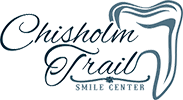If you have children, you probably refer to guidance from children’s dentists and the American Dental Association regarding when and how to start teaching them to brush their teeth. This includes teaching kids to floss once a day and brush the teeth twice a day, using a fluoride toothpaste (as soon as soon as they are old enough to reliably spit, instead of swallow). But what about rinsing the mouth with mouthwash? Many adults consider mouthwash an important part of their daily hygiene routine, even though it is not considered essential for good oral health. Duncan OK children’s dentist Dr. Matthew Bridges does not discourage parents from buying rinses for their children—but there are a few things you should keep in mind!
The Right Age to Introduce a Rinse
Most children are old enough to start using small amounts of fluoride containing toothpastes at about age three or four. We don’t recommend fluoride for children younger than that, because swallowing it can be dangerous to a child’s health. Not only can fluoride be toxic in high doses, but it can also damage the appearance of growing teeth at lower thresholds. If a child is swallowing fluoride, the adult teeth may come in with permanent fluoride stains, a condition called fluorosis.
Many children’s rinses contain fluoride for an extra level of cavity protection, so we don’t recommend introducing them until about age six. Children’s rinses tend to come in a number of mild, kid-friendly flavors; until age six, it may be too likely that a small amount will be swallowed accidentally.
Using Children’s Rinses Correctly
If you choose to let your child use a rinse, pay attention to the ingredients and buy a product made specifically for kids. Adult rinses may contain harsh ingredients that can dry out a child’s mouth or cause sensitivity. Most children do not need to use rinse with alcohol or antimicrobial ingredients, unless your children’s dentist has specifically recommended it. Instead, choose a cavity-fighting rinse that contains fluoride.
A fluoride-containing rinse can help your child make sure he or she has removed all particles of food after brushing. Teach him or her how to swish vigorously to make sure all parts of the mouth get rinsed. A mouthwash can also provide an extra layer of cavity prevention, since liquids may be able to reach spaces between the teeth that are occasionally missed by toothbrush bristles or floss.
Children should refrain from eating or drinking anything for at least 30 minutes after using a rinse. This ensures teeth get the maximum cavity-fighting and tooth-strengthening benefit from fluoride, as it stays in contact with the teeth longer this way. Rinsing the mouth with water afterward can negate the oral health benefit of the rinse, so be sure to choose a mild product that won’t burn your child’s mouth.
Monitor your child regularly, to make sure he or she is not swallowing the product or otherwise using it improperly. For example, accidental swallowing may become more likely if a child is using double the recommended amount of the liquid rinse! Make sure they use the right amount, for the right length of time. Even older children and teenagers benefit from an occasional parental “audit” of their oral hygiene routine, so make sure you observe and guide your child’s use of rinses.
Do You Have Questions About Your Child’s Oral Health?
At Chisholm Trail Smile Center, we want your family to have the best oral health possible. We always make time for parents’ questions, and ensure both children and adults understand how their behaviors and dietary choices affect their teeth and gums. If you have questions about your children’s oral health, schedule an appointment with Duncan, OK children’s dentist Dr. Matthew Bridges and you’ll have ample opportunity to speak with our staff. Call us at (580) 255-4880 to make an appointment.







